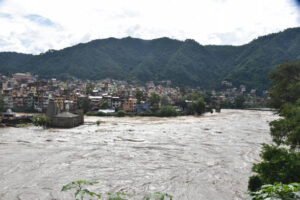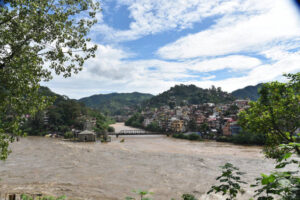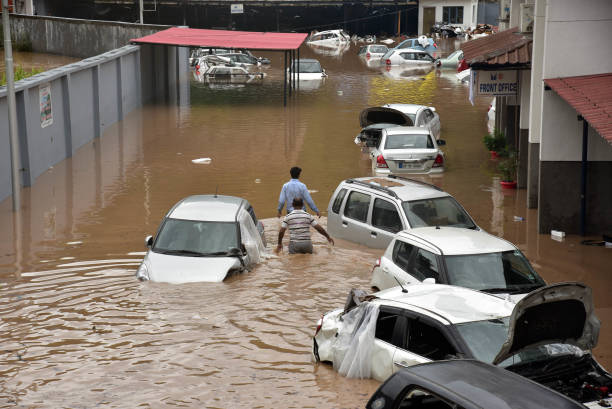—
🌧️ Government Approves ₹2,006 Cr Relief for Himachal Pradesh Flood-Affected Areas
The Union Home Minister–led high-powered committee, chaired by Amit Shah, recently announced a substantial ₹2,006.40 crore in central assistance to Himachal Pradesh to support recovery and reconstruction efforts following the devastating floods, landslides, and cloudbursts that hit the state in 2023 .

🧾 Breakdown of the Funds
**₹1,504.80 crore** will be sourced from the National Disaster Response Fund (NDRF).
The remaining amount complements earlier disbursals of ₹633.73 crore in December 2023, bringing total aid to over ₹2,640 crore.
This move aligns with the government’s broader strategy to ensure sustainable rehabilitation in the wake of recent disasters.
—
- 🏗️ What the Funds Will Support
The allocation is earmarked for extensive activities, including:
Reconstruction of roads and bridges
Restoration of damaged water supply and power infrastructure
Repair of public buildings and community facilities
Enhanced mitigation measures to strengthen resilience against future disasters in vulnerable regions .
—
🌐 Wider Disaster Management Framework
The package is part of a broader initiative addressing disasters across several states:
Earlier aid included ₹1,658.17 crore for Uttarakhand (Joshimath subsidence) and ₹555.27 crore for Sikkim after the GLOF (Glacial Lake Outburst Flood) incident .
Additionally, mitigation projects worth ₹7,253.51 crore have been sanctioned for urban floods, landslides, GLOF, forest fires, lightning, and drought across India .

🎯 Why This Matters
1. Rapid Response to Recovery Needs
The assistance will accelerate rebuilding efforts in Himalaya’s most impacted areas—particularly districts like Mandi, Kullu, and Kangra.
2. Strengthening Disaster Preparedness
With an additional multi-state mitigation fund, India is shifting toward a proactive disaster resilience model that anticipates hazards rather than reacting post-disaster.
3. Anchored in National Policy Vision
Over the past decade, funding for disaster relief has surged: SDRF budgets tripled from ₹38,000 crore (2004–14) to ₹144,000 crore (2014–24), while NDRF funding increased from ₹28,000 crore to ₹84,000 crore . A new ₹68,000 crore National Disaster Risk Management Fund also underscores this paradigm shift .
—
🗣️ Political and Local Reception
The decision has been welcomed widely:
HP BJP President J. P. Nadda praised Home Minister Shah and the government, highlighting that ₹93,000 crore has also been committed under the Pradhan Mantri Awas Yojana (PMAY) for housing reconstruction .
Local residents, while relieved by the funding, also emphasize the need for climate-resilient construction and better early-warning systems to prevent future loss.
The ₹2,006-crore aid package represents a significant milestone in India’s disaster relief strategy. It underscores a transition toward integrated, long-term resilience, covering infrastructure restoration, hazard mitigation, and climate adaptation. With continued public participation and inter-state coordination, the goal of “zero casualty” .
—
Would you like me to create an infographic highlighting the fund breakdown and affected regions, or draft a press-style summary for media use?
